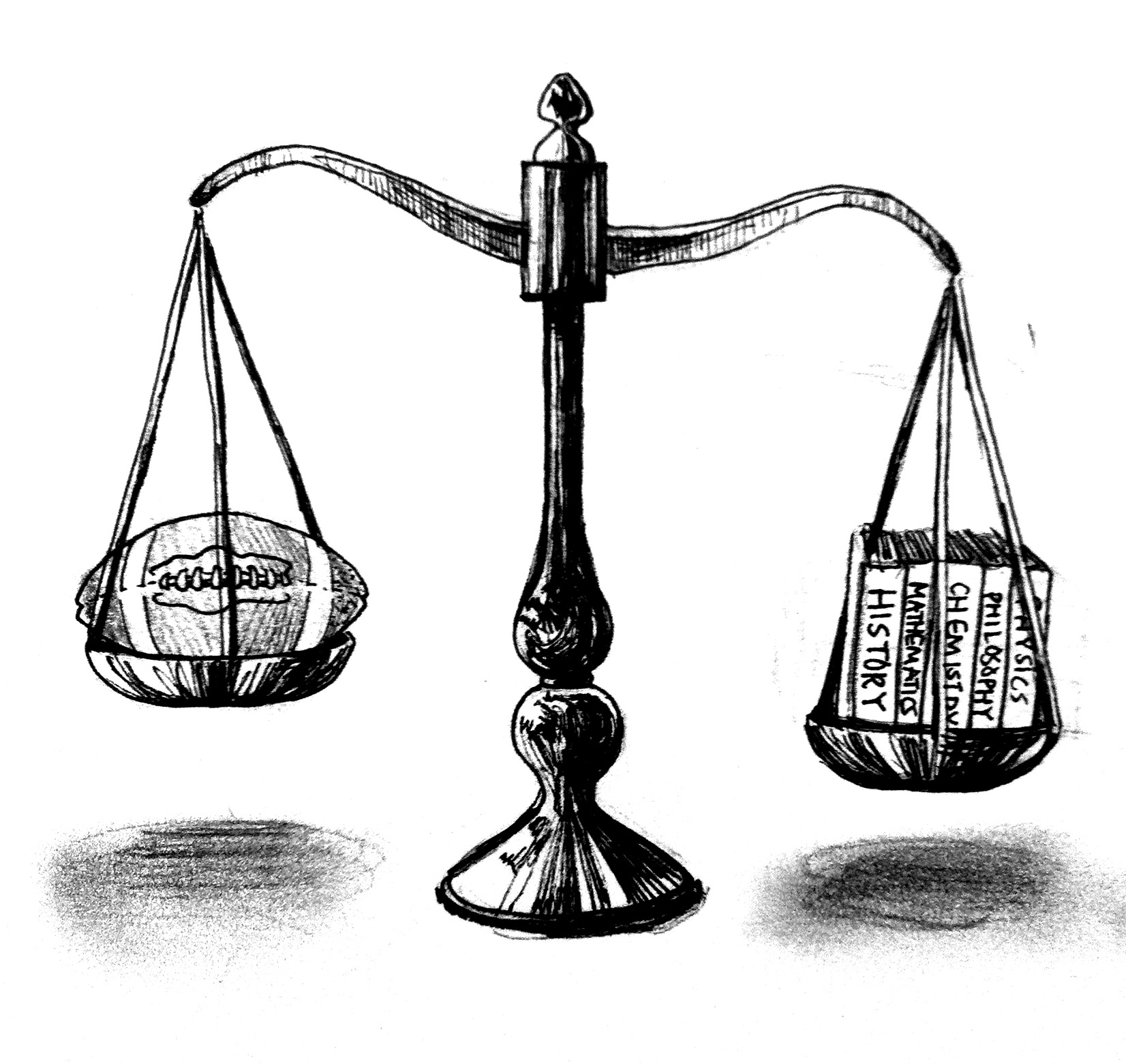
News
Progressive Labor Party Organizes Solidarity March With Harvard Yard Encampment

News
Encampment Protesters Briefly Raise 3 Palestinian Flags Over Harvard Yard

News
Mayor Wu Cancels Harvard Event After Affinity Groups Withdraw Over Emerson Encampment Police Response

News
Harvard Yard To Remain Indefinitely Closed Amid Encampment

News
HUPD Chief Says Harvard Yard Encampment is Peaceful, Defends Students’ Right to Protest
The Game of Undertones
One reason why the gift of Harvard-Yale comes once a year

Usually when I write these things, I don’t want to hear any noise. That’s mainly because I’m very into myself. So it’s nice to only hear my own voice as I write.
But this time around, I really, really didn’t want to hear anything. I had just returned from a long weekend at The Game and had to write that night. For the past few days, I had been around people all the time, shouted with them, and laughed with them. I also had a bit of headache after drinking a lot of “totally non-alcoholic drinks.” Like, I had a lot of “totally non-alcoholic drinks.” And beer.
At first it was alright. The room was completely quiet besides the slight ticking of a clock. I opened up my laptop and started typing. But then suddenly and subtly, the gentle notes of a classical piano began to glide around the room, dampened by the wall to my left. My gut reaction:
“Damnit, Harvard.”
I feel like everyone here is a maestro—and the rest of us make up a silent minority, since we can’t make any nice sounds. Still, the piano was soothing. And when it stopped, I made sure to give the kid a clap as he left the adjacent room, alone.
Nothing says “you’re back” like Beethoven. Hearing the notes felt like a transition—from thousands cheering on big men with a ball, to just me overhearing a student next door putting fingers to keys. I went from a type of “state school” feeling, back to the same old, really old, prestigious, liberal, artsy, liberal artsy Harvard. You’ll see the same contrast in any national broadcast of The Game or coverage of Harvard men’s basketball in the NCAA tournament, as sports commentators make jokes about Harvard’s athletics in relation to its academics. In effect, being a Harvard sports fan seems a little quirky or odd because of this contrast.
But there is something I realized in that room, after the piano subsided and my thoughts were alone. There isn’t really a reason for any contrast or quirkiness in Harvard sports and academics—at least, not in ways that should affect our ability to be “real” fans.
Since the beginning of sports, or at least since High School Musical 2 hit theaters, athleticism has been seen as against academics. You’ve got the dumb, big jocks and the smart, scrawny nerds. Despite many examples to the contrary, it still seems obviously true to so many. And that’s because it is.
Athletics is anti-academic in that it literally takes away time that could be spent studying. But that’s not really unique. A lot of things take time, like playing classical music in a practice room or writing for The Crimson, or writing for The Crimson about listening to classical music while listening to classical music coming from someone practicing in the other room. So why do sports, comparatively, get a bad rap? It’s hard to tell. Depending on involvement, these activities can take up the same amount of time. They all reward hard work. For music and athletics, there is proof that doing both can help you think. And while journalism does cross paths with academic subjects, it rarely does so in a meaningful way. For example, read this article. So sports don’t really seem all that bad
Still, discussion in the administration on issues like recruiting suggest that sports are seen as incompatible with our University’s prestigious academics, especially when compared to larger state schools where fandom is more popular. All year, it seems like Harvard tries really, really hard to let you know you are not at a big state school. For instance, it takes $60,000 of money away from your family every semester. It emphasizes “concentrations,” suggesting that you may have problems concentrating on your “social studies” homework. And it provides free snacks to students at night. Sure, it’s hard to tell sometimes whether you are going to a small, expensive private middle school or a small, expensive liberal arts college, but you sure as hell know you’re not going to a big school that probably has a great football team.
But these differences should have no bearing on how we choose to root for our teams. The rarity of Harvard’s en masse fandom could partly be a result of students’ heavy workload. But I also think part of it is because of this false contrast between academic and athletic culture. And that’s unfortunate, because when I rolled out of bed—which was the hard, dirty floor of a Yale dorm room—after a few hours of sleep and showed up to a huge tailgate before we slaughtered our rivals in the biggest game in one of the most iconic sports in our country, I didn’t feel like a quirky type of fan, rooting for an Ivy league school’s best shot at athletics. I just felt like a college kid rooting on his team. That shouldn’t change just because I may expect to hear Beethoven’s Fifth on returning to campus.
The talents each student brings to Harvard, whether athletic, academic, musical, lyrical, or otherwise, are part of a coexistence, not separate quirks. And until Harvard fans and those outside the Harvard community see that, the great communal bonding and plain fun of The Game may always be just that—part of one game.
Oh and, by the way, Yale sucks.
Dashiell F. Young-Saver ’16, a Crimson editorial writer, is an English concentrator in Winthrop House.
Want to keep up with breaking news? Subscribe to our email newsletter.
